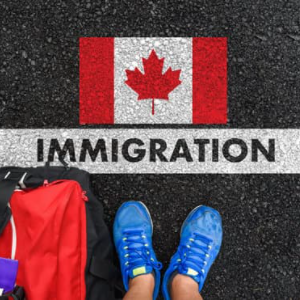Express Entry: Canadian Experience Class (CEC)

There are many highly qualified employees in Canada who are temporary residents. These people have assimilated to Canadian residents, established themselves in their field of specialization and are familiar with most aspects of Canadian life. The Canadian Experience Class is an Express Entry economic immigration category designed to help employees with Canadian experience obtain permanent residency and continue working in Canada. The Canadian Experience Class (CEC) is a permanent immigration program for those who have been working in Canada for at least one year. The Canadian government recognizes the large number of bright people already working in the country, and wants them to stay. These individuals and families have settled in Canada and made plans for the future.
The Canadian Experience Class is designed for foreign nationals who have worked in Canada as temporary employees and wish to stay. If you have worked in Canada for one year as a full-time or part-time employee within the last three years, you can apply for the Canadian Experience Class and seek permanent residency. With permanent residency under the CEC program, you can live and work in any province of Canada (outside Quebec). You'll be able to apply for Canadian citizenship and obtain a Canadian passport within a few years. You will be entitled to the same privileges as other permanent residents or citizens of Canada, such as medical coverage and the possibility of studying in Canadian institutions if you or your children so wish.
About Express Entry ?
Express Entry allows IRCC to invite qualified individuals to apply for permanent residency. By completing an Express Entry profile online, these individuals have made an official "Expression of Interest" in settling in Canada. Qualified applicants' profiles are authorized in the Express Entry system, where they are scored and ranked using the Global Ranking System (GRS) based on the personal information they have submitted. To be eligible for the Canadian Experience draw, foreign graduates and temporary foreign employees must have worked in Canada. The CEC has a pass/fail paradigm for all its criteria. The candidate is qualified to apply to this program if the minimum requirements are met. The pool includes people from the Federal Skilled Worker Program (FSWP) and the Federal Skilled Trades Program (FSTP), in addition to the Canadian Experience Class (CEC).
Benefits of the Canadian Experience Class
There are several advantages for candidates in the Canadian experience category, which are detailed below:
- Candidates have worked in Canada for at least one year. This is a highly rated characteristic in the CGS, so these candidates can earn points for their Canadian experience.
- Applications are processed quickly for many candidates, because the documentation required is limited.
- Unlike FSWP and MSWP applicants, CEC applicants are not required to provide proof of sufficient funds.
- CEC applicants who are selected by Entrée Express normally receive their permanent resident status within six months or less.
- Express Entry allows applicants with Canadian experience to accumulate additional points in the Global Ranking System (GRS). This improves their chances of obtaining permanent residency in Canada.
- Applicants to the federal skilled worker program who have already resided in Canada have a significant advantage in integrating into the Canadian labor market. CEC immigrants can be highly successful in the labor market because they combine strong human capital characteristics (e.g., being young and middle-aged, having high levels of education and work experience) with the ability to create social and professional ties in Canada.
What are the requirements for the Canadian Experience Class?
You must first determine your eligibility for the Canadian Experience Class before applying. You must meet a number of standards, and you can find out if you do by using the CGS calculator on the IRCC website. By selecting "Check your eligibility", you'll take a test that includes several questions about your background. This test checks whether you meet the requirements and, if so, generates an application number for you to use at a later date.
The survey will test you on :
- Work experience and profession
- Language skills and education
- Eligibility
Let's review the qualification requirements of the Canadian experience category, because one year of Canadian work experience is not enough.
Professional level and work experience
You will be asked how long you have been working and whether you have Canadian work experience in the questions on work experience and occupational level in the National Occupational Classification (NOC). To be eligible for the CEC, you must have worked in Canada for at least one year in the last three years. In addition, you must have work experience at a specified occupational level. A document called the National Occupational Classification (NOC) is used in Canada to evaluate the degree of expertise required for each job. For your work experience to be accepted, it must fall into one of the following categories: RRIF 0, RRIF 1, RRIF 2 or RRIF 3. You must demonstrate that this work experience encompassed all NOC responsibilities. In addition, self-employment and work experience acquired as a full-time student in Canada (co-op or internship) are not eligible for the CEC. Your employment experience will also be rejected if you worked in Canada but did not have status or authorization.
Eligibility criteria - Canadian Experience Class
Candidates for the Canadian Experience component must :
- Have worked in Canada for at least 12 months on a full-time (or comparable part-time) basis within the previous three years. This experience must have been acquired while working under a valid work permit in one or more jobs classified as RRIF 0, RRIF 1, RRIF 2 or RRIF 3 by the National Occupational Classification (NOC). One year of experience can be obtained in two separate NOC codes, provided the roles are qualified and the work experience is legally acquired.
- You should plan to live outside Quebec; and
- Proof of language skills and levels specified for the job (speaking, reading, listening and writing).
Employment experience gained through self-employment and work experience gained while registered as a full-time student, for example, are not eligible for the Canadian Experience Class. The following IRCC-approved language tests are available for Canadian Experience Class applicants:
- CELPIP-General (English)
- IELTS-General (English)
- TEF Canada (French)
- TCF Canada (French)
Candidates who demonstrate proficiency in English and French will receive bonus points in the Global Ranking System.
Canadian Experience Class - How to apply
Let's review the steps involved, from applying for a job in Canada to receiving your Permanent Resident (PR) card.
Obtaining a Canadian work permit
This program requires that you have legal permission to work in Canada. An open work visa may be a possibility for some people, such as those who qualify for the International Experience Canada (IEC) program, or the spouse of an international student or foreign worker in Canada. Others may be provided with an employer-specific ("closed") work permit. Closed work permits include those with a positive Labour Market Impact Assessment (LMIA) and intra-company transfers.
Work at least one year in Canada
To qualify for the Canadian Experience Class, you must have at least one year's work experience (or more if you work part-time).
Make sure you meet all other qualification requirements
Complete your language exam. Candidates can take the IELTS or CELPIP test for English. TEF and TCF are the two current alternatives for French. Candidates who are proficient in both English and French can receive bonus points for their second-language skills.
Create an Express Entry profile
On the IRCC website, this step is complete. Some of your personal data will be self-declared (such as your work history), while others may require validation.
Boost your profile and ranking in the Comprehensive Ranking System (CRS)
One of the main reasons Canadian Experience Class applicants do not receive an invitation to apply is that they do not provide proof of their education. While Federal Skilled Worker applicants are required to provide proof of their education, Canadian Experience Class applicants are not. However, by failing to do so, CEC applicants risk losing up to 250 points in the overall ranking system - 150 points lost for academic level alone, plus an additional 100 points lost for a combination of Canadian work experience and/or language skills. These points may be awarded to candidates who have completed their studies outside Canada by obtaining an Educational Credential Assessment (ECA). Applicants must obtain an ECA or submit proof of Canadian studies to increase their chances of being invited to apply for permanent residence under the Canadian Experience Class. Other options for improving your points include gaining more work experience or verifying your eligibility for one of the provincial nominee programs aligned with Express Entry, particularly those in the province where you work. Your skills and expertise may be in high demand in the province, and you may be eligible for an increase of 600 points.
Receive an invitation to apply (ITA)
You'll receive an invitation to apply if your score is above the points threshold for the invitation round. This is the phase most people look forward to, as it allows you and your family, if applicable, to apply for permanent residency in Canada. You will have 60 days to complete your application after this point. When IRCC conducts one of its draws from the Express Entry pool, Invitations to Apply (ITAs) are sent out. If your work permit expires within the next four months, you can apply for a transitional open work permit to continue working for the remainder of the process (but your work permit application must be submitted after you have completed your CEC application for permanent residence).
Complete a medical exam, security background check and submit application online
All Canadian Experience Class applicants are subject to medical and criminal background checks. You must submit proof of a medical examination by an IRCC-approved physician with your application. In addition, you must submit a background check (commonly known as a police certificate) from each country where you have lived for at least six months since turning 18. The electronic application must also contain detailed letters of reference from former employers, which must be provided within 60 days of receiving an invitation. Given the short time constraint, collecting background checks and employment reference letters before receiving an invitation is a good idea.
Processing your request
A Canadian immigration officer will analyze your electronic application and contact you if additional information is required. A decision will then be made.
Confirm your permanent resident status and complete your application
In less than six months, most applications received under the Canadian Experience Class are filled. A Confirmation of Permanent Residence (COPR) document is issued. When permanent residence is granted, an official at a Canadian port of entry or IRCC office signs and dates this document.
Get your PR card
You can then apply for your PR card once you've received confirmation of your status. This card can be used to prove your Canadian status if you travel outside the country.
How to calculate Canadian work experience
Your work experience must have included paid employment, such as salary or commission. Volunteer work and unpaid internships are not counted. You can work more or less than 15 hours a week as long as your total annual time is the equivalent of full-time work. You can earn the hours you need by working several part-time jobs! Skilled work experience is defined as follows by the Canadian National Occupational Classification:
- TEER 0 - Management positions
- TEER 1 - Occupations generally requiring a university degree
- TEER 2 - Occupations generally requiring: a college diploma, an apprenticeship of 2 years or more, or supervisory duties.
- RRIF 3 - Occupations generally requiring: a college diploma, an apprenticeship of less than 2 years, or on-the-job training of more than 6 months.
One or more jobs in the RRIF 0, RRIF 1, RRIF 2 or RRIF 3 categories may be included in your work experience.
Is it possible to apply to the CEC program from outside Canada?
Yes, you can apply for the Canadian Experience Class from anywhere in the world as long as you meet all the basic CEC requirements described above.





